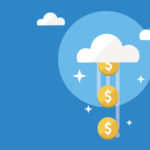What you need to know about money
Understanding money seems simple enough, right? You earn it, you owe it, you spend it. Simple. But studies show that people who take the time to learn and understand some basic financial information are better off now and more likely to achieve their short- and long-term financial goals in the future.

Here are some basic things you can monitor or adjust to help save you money, improve your credit score and just generally enhance your personal financial literacy:
Your Checking Account
Smartphones and debit cards have dramatically changed the way we use our checking accounts. Hardly anyone writes checks anymore, and transactions are so simple now, it’s easy to forget there’s real money behind them. The biggest potential expense on a checking account is overdraft fees -- averaging around $34 -- but you can take control of that with a few simple steps:
- Use text or mobile banking app to set up balance alerts. You can typically select a threshold amount so you can be aware of your spending.
- See if your bank offers an overdraft line of credit,, which will automatically transfer funds to cover transactions up to your credit limit. Keep in mind, you will pay interest on the outstanding loan amount.
- Make the choice to opt-out of having your overdrawn transactions covered. In that case, if a transaction exceeds your balance, it will simply be declined. Be aware, though, that this could lead to return-check charges along with your bank’s overdraft fee.
Your Credit Card
As with a debit card, it’s easy to view credit cards as a readily available source of funds. But managing your credit wisely can keep you from overextending yourself and help protect your credit score, too. The average American owes $16,048 with an APR of 16.47%. That means if they took 10 years to pay off their full balance, they spend another $16,695 in interest to their card issuer, totaling more than twice what they initially spent.
- Be mindful of your outstanding balance and your ability to repay it.
- Plan to pay more than the minimum payment each month to reduce your interest expense.
- Make payments on time to protect your credit score.
- Shop around for a card that offers you an interest rate and annual fee you’re comfortable with. And if possible, find one that offers perks -- like air miles or cash back -- that will benefit you, as well.
Your Credit Score
Speaking of your credit score, make sure you know yours… as well as the things that impact it.
- Your credit score may impact your ability to get credit, whether you’re applying for a car loan, a mortgage or a credit card.
- Your credit score can also affect the interest rate you pay, as many lenders will charge a higher interest rate to those with lower credit scores.
Arming yourself with a basic understanding of your finances -- and financial products in general -- can help you become a more savvy financial consumer and help save you money. That extra cash you’re not spending on overdraft fees or credit card interest could help you plan and save for retirement. Paying closer attention to your credit card spending could reduce your monthly expenses and help improve your credit score. Your improved credit score could help you refinance your mortgage to take advantage of a lower rate.
In short, taking the time to become more financially literate could really pay off.
Learn more about the free financial literacy program available at BBVA Compass.